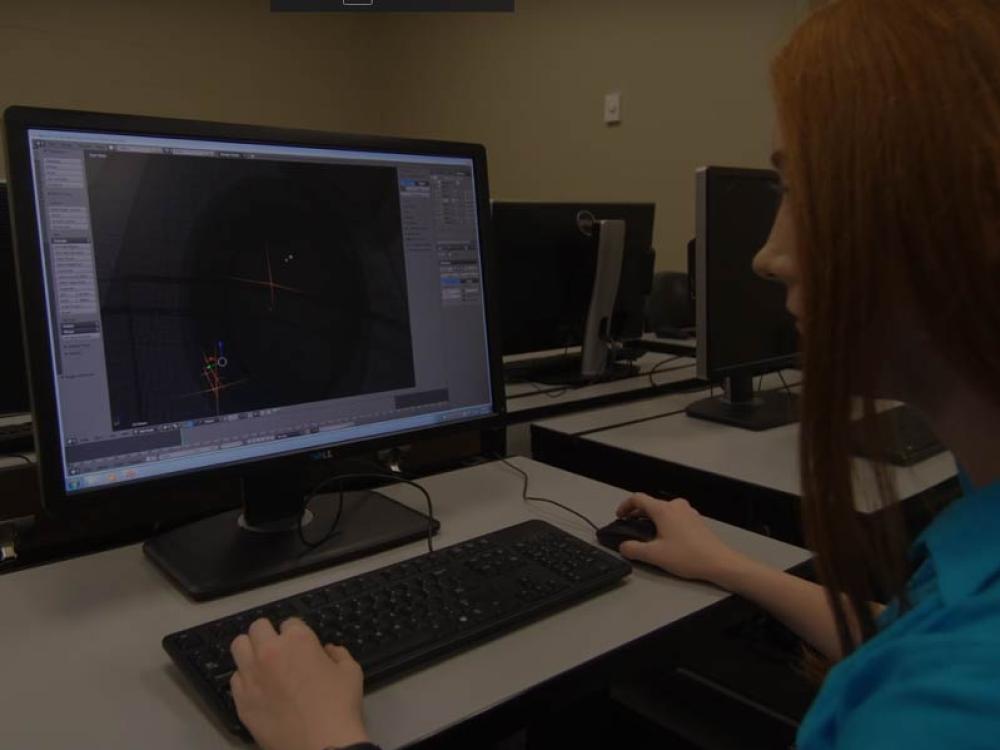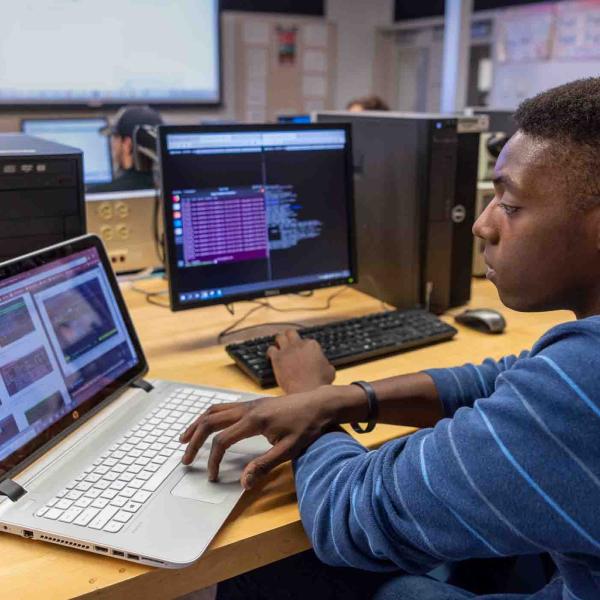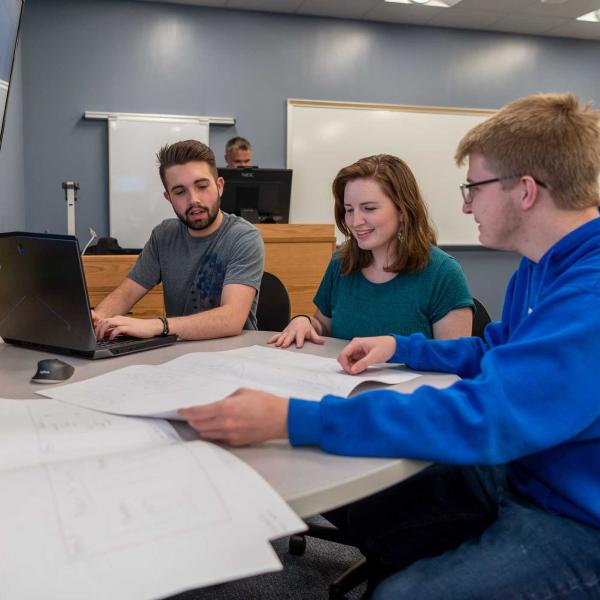Information Assurance & Cyber Security
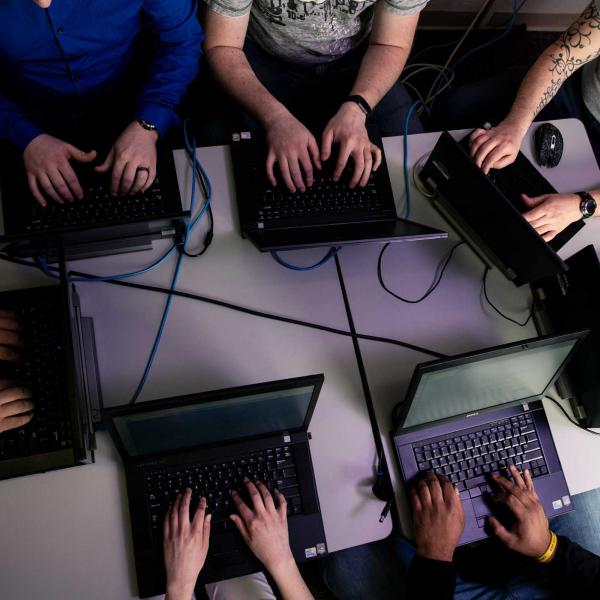
About this program
As technology advances to new levels, online security is more important than ever before. With a degree in Information Assurance & Cyber Security, you’ll learn how to safeguard sensitive data and prevent critical attacks. From IT essentials like programming, databases, and networking to threat prevention, assessment, and testing, this industry-driven curriculum pulls it all together to create the diverse skillset that future employers want most.
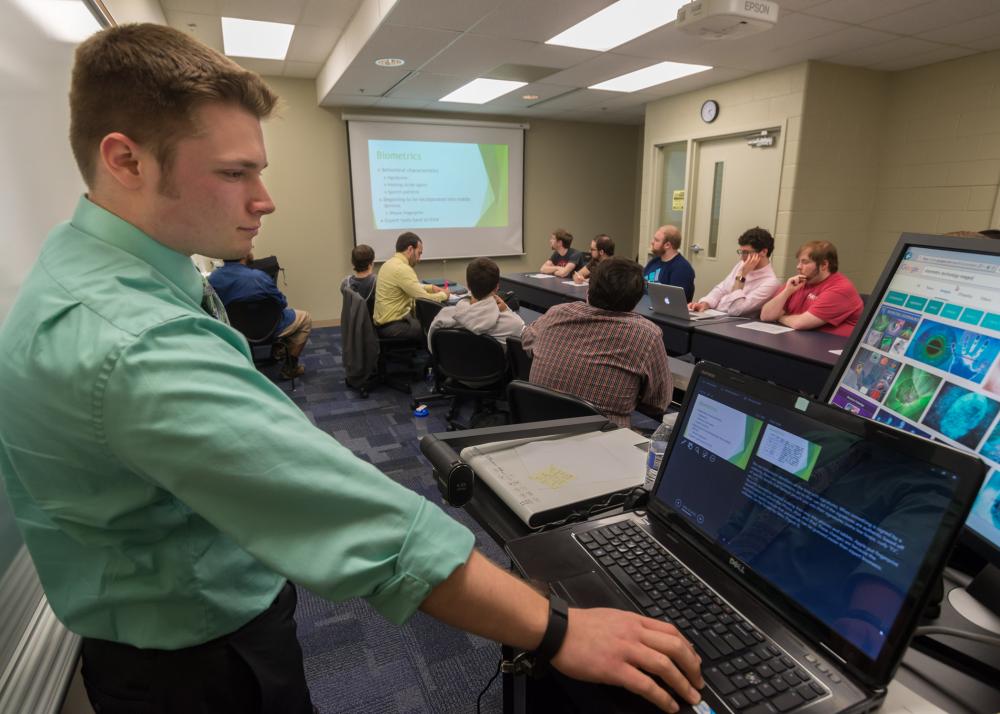
Careers
- Information security analyst
- Information security manager/administrator
- System security engineer/architect
- IT security consultant
- Security incident responder/investigator
- IT auditor
- Penetration tester
- Cybersecurity analyst
Courses
At Penn College, we believe your educational experience should go beyond specialized skills. Real-world ready means taking a broader approach that builds communication skills, inspires collaboration, and encourages exploration of arts, history, and science.
Specialization requires in-depth knowledge and high-level proficiency. Students learn and apply major-specific concepts, skills, and methods.
- Introduction to Programming (CIT160)
- Networking I (EET145)
- Principles of Management (MGT115)
- Programming II (CIT260)
- Networking II (EET247)
- Introduction to UNIX/Linux (CIT240)
- Introduction to Database (CIT180)
- Directed Information Assurance & Cyber Security Elective (BCS)
- Fundamentals of Information Security (CIT230)
- Secure Database Development (CIT281)
- System Analysis I (CIT246)
- Fundamentals of Cryptography (CIT335)
- Network Defense (IAS312)
- Information Security Tools for Code & Data Analysis (IAS211)
- Ethical Hacking & Penetration Testing (IAS311)
- Information Security Policy (IAS411)
- Legal Issues in Information Security Management (LAS350)
- Management of Organizational Behavior (MGT410)
- IAS Awareness, Training & Education (IAS412)
- Contingency Planning (IAS413)
- Secure System Accreditation & Certification (IAS461)
- IAS Seminar I (IAS492A)
- Risk Analyst Capstone (IAS466)
- Information Security Forensics & Incident Response (CIT430)
- Advanced Topics in Information Assurance & Security (IAS490)
- IAS Seminar II (IAS492B)
Perspectives are points of view, offering a variety of ways of understanding, interacting, and influencing the world. Students identify, explain, and utilize the approaches used by academics and professionals to study, analyze, or understand problems, and offer solutions.
Next steps...
You're on your way to becoming a tomorrow maker.
What's the difference between Information Technology and Computer Science?
Computer science is more theoretical, with increased math requirements. Many tend to focus on programming or cutting-edge computing, like artificial intelligence and augmented reality.
IT is focused on supporting the user. It is more people-focused, making the tools of computing accessible to fit the needs of people and organizations, as well as creating computing tools and systems to meet the user's needs.
Virtual Tour
Information Technology
Get a glimpse inside the labs where future IT professionals learn how to install, configure, and maintain computing systems. Meet Dr. Sandra Gorka, Associate Professor of Computer Science. And check out everything from gaming and simulation spaces to the hands-on labs decided to cyber security, networking, database management, and Linux systems.
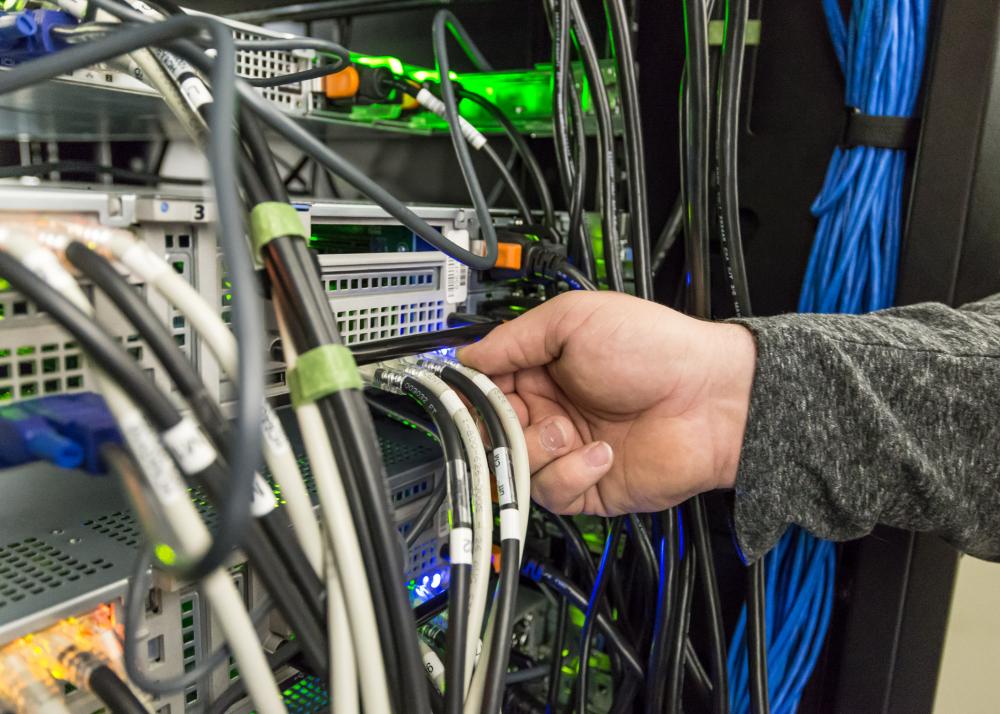
Facilities
IT Labs
Apply theory to the real thing in our specialized IT labs. Here, you’ll have access to both physical and virtual labs designed for networking, IT security, operating systems, and gaming. Apply the principles of ethical hacking, intrusion detection, and digital forensics in both physical and virtual environments. Labs also allow students to create 3D models, investigate hypervisors, build networks from bare metal to full production, and simulate a host of applications and network configurations.
Maker Profiles
Featured Video
Women In STEM
What does it take to succeed in a STEM career? Curiosity. Critical thinking. A can-do spirit. And an educational experience that meets your passion head-on. Here, you’ll meet a community of innovators. Future pioneers who are learning by doing. Breathing new life into old concepts. Testing theories. And breaking barriers. Because the more you explore, the more you grow. And the bigger difference you can make.
Tour Schedule
Seeing is believing.
Think Penn College might be a good fit for you? Make plans to visit and discover what hands-on learning is all about.
Jul 19
Undergraduate Open House
Saturday, July 199 AM - 3 PM
Oct 4
Undergraduate Open House
Saturday, October 49 AM - 3 PM
Nov 2
Undergraduate Open House
Sunday, November 29 AM - 3 PM
Internship
Your knowledge in practice
Internships are key for career preparation. Apply your knowledge to the workplace and learn about the industry first-hand.

Related Programs
Follow your passion
Student Life
Lead and put your skills to the test
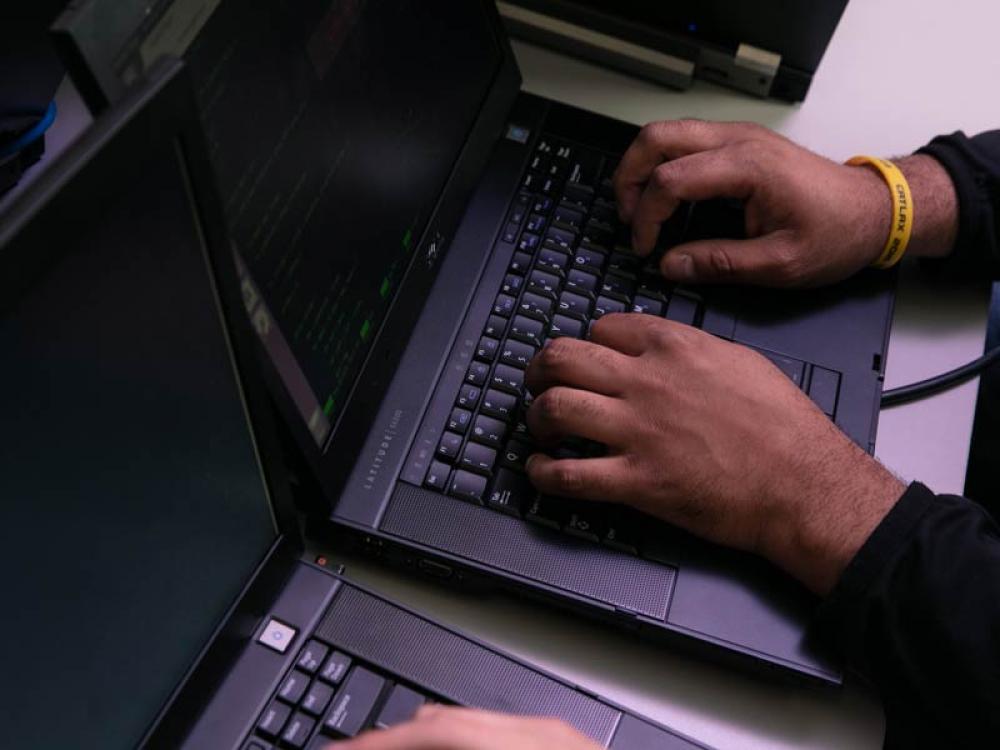
Information Security Association (ISA)
ISA is a security club that encompasses all IT majors. It stresses the importance of security through networking, programming, security, and even average computer users.

Student Organizations at Penn College
Your college experience is about more than the classroom. Join one of 65+ clubs and organizations, or create your own.
Penn College News
Wednesday, June 11, 2025
Penn College prof to fulfill ‘dream’ with Challenger Game
Tuesday, April 29, 2025
'Inspired by IT'
Wednesday, April 16, 2025
Nine Penn College students inducted into IT honor society
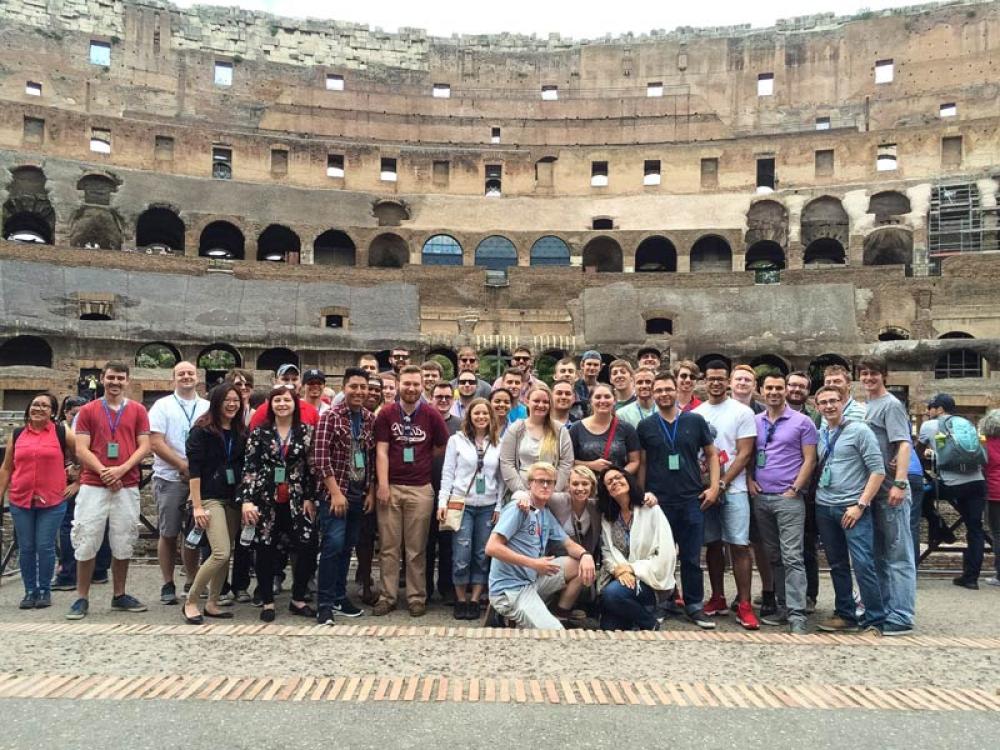
Study Abroad
Gain global experience
See the world via Williamsport. Take your education abroad and get hands-on experience learning about your industry on a global scale.
Our Leadership
Faculty Story
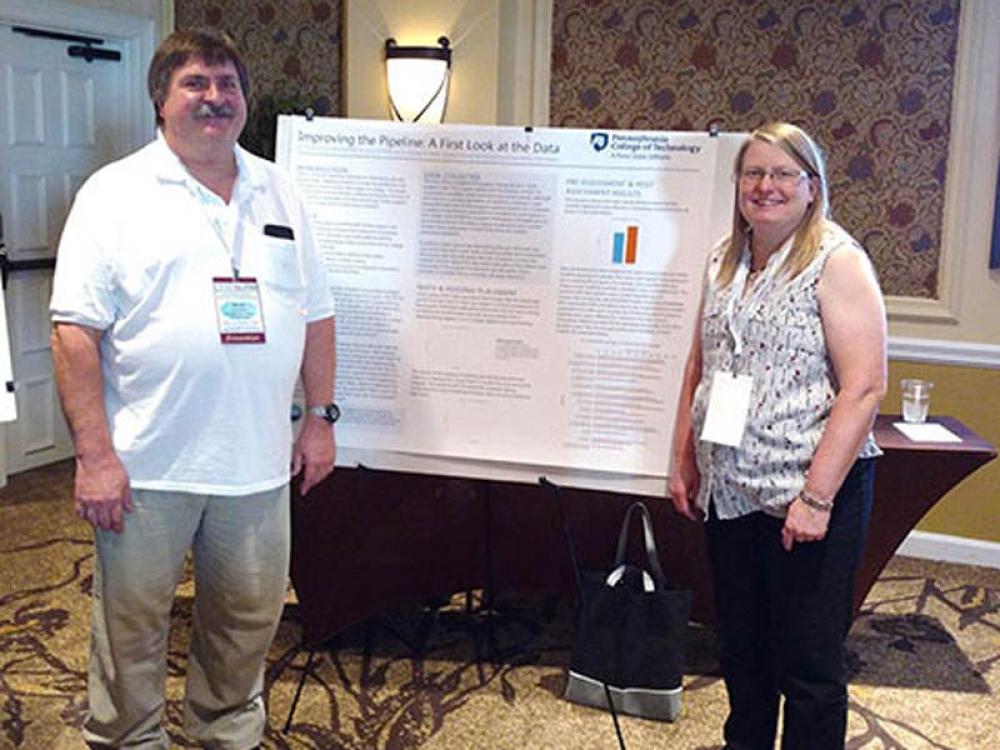
Jacob Miller and Sandra Gorka, both computer science professors, were featured in the Washington Post for their efforts in extending cybersecurity education to high school students.
More Information
- This program was developed to meet the curricular recommendations for the National Centers of Academic Excellence in Information Assurance/Cyber Defense (IA/CD) Education, a joint effort of the NSA and DHS.
- Operates on an A,B,C,F grading scale for all major courses.
Students must complete all required major courses in the Information Assurance and Cyber Security major (those with the alpha-designators CIT, EET, BCS, LAS, and MTH) with a grade of "C" or higher. Additionally, any course approved for use as the IAS elective must also be completed with a grade of "C" or higher.
Students seeking entrance through transfer should strive to take courses at their respective institutions that provide competency in the following areas; programming, two semesters minimum (same language); database; networking, two semesters minimum; UNIX and/or Linux; and calculus for engineering or math majors. Students planning to transfer from another college and wanting specific course advice should consult with the IT faculty at Penn College.
Alternative Credit refers to academic credits earned through means other than traditional college course completion, including: credit by exam, articulation, proof of competency gained in high school, work/life experience, and advanced placement.
Visit the Alternative Credit Options page for requirements and procedures and for information on credit through Advanced Placement.
Special Considerations: Many jobs in information security will require background checks and/or security clearances. Ethical behavior is necessary if a student expects to succeed in this field. Additionally, due to the rigorous math requirements of this program, prospective students should consider applying early and remediating needed classes (such as Algebra or Pre-Calculus) prior to entering your first semester at Penn College.
A laptop/notebook computer is required for enrollment in major courses. Laptop specifications
Uniforms and tools are available for purchase through The College Store and Penn State Computer Store .
- Mr. James R Ankers, CISSP, CISA, IT Specialist (INFOSEC), United States Navy
- Mr. Daniel J Clarke, '07, Senior Solutions Architect, Arraya Solutions
- Dr. Todd W Griffith, Chief Technology Officer, Discovery Machine Corporation
- Mr. Brandon J Howe, '01, Sr. IT Analyst, Anadarko Petroleum Corp.
- Dr. Karl M Kapp, Assistant Director, Institute for Interactive Technologies, Bloomsburg University
- Mr. Brad E Lenig, 2018, Senior Enterprise Network Engineer, Pennsylvania College of technology
- Dr. Krish Pillai, Ph.D., Assistant Professor, Lycoming College
- Mr. Mark J Watson, '85, Administrative Director, Corporate Information Technology, Susquehanna Health





